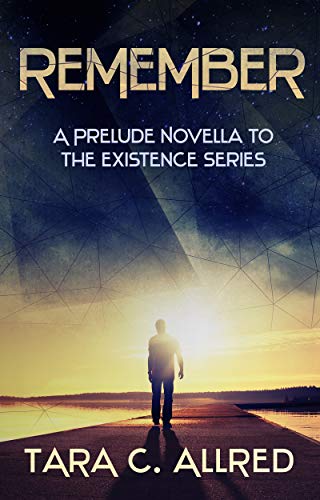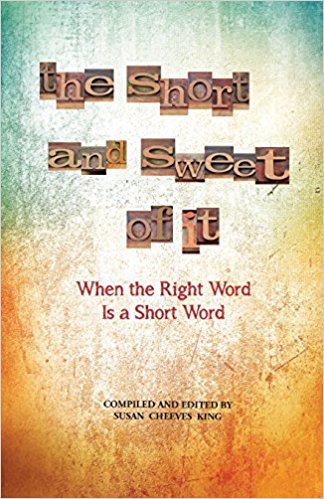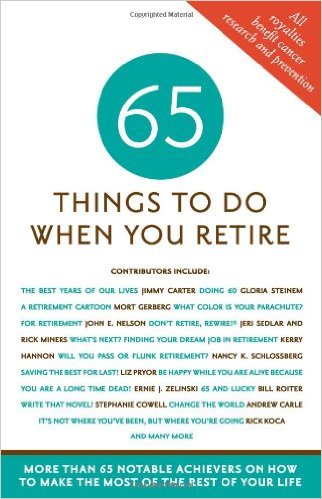Advice To Myself As A Newbie Author
May 23, 2007 by A Slice of Orange in category Archives tagged as Advice to Myself as a Newbie AuthorHere’s the thing about advice: I don’t like it. I don’t like to get it and I don’t like to dish it out. Now, that’s in theory, of course. In real life I too often tell people what they ought to do in any given situation, even when they haven’t asked for input. And I’m always getting little pointers from friends on anything from where to buy the best shoes for wide feet to which retirement community I ought to be looking into for my aging mom to which of the Food Network shows might appeal to someone who doesn’t eat sugar and is always trying to “cut down.†Having a theory is easy; living it is hard.
See, the thing about advice—the unsolicited kind, that often begins with “If you don’t mind me saying…†or “You should…â€â€”is that it sends a subliminal message saying “The way you are doing it now is wrong.†It can be coated with all kinds of caveats but that’s the one. And I don’t know about you but I’m always thinking that someone, somewhere knows better than I do how to do everything, and advice reinforces it. That’s why my back gets stiff when I’m offered unasked-for words of wisdom, and why when I find myself about to do it—I am human, after all, right?—I try to shut up before the words pass my lips. The thing is no one is doing anything the right or wrong way. They’re doing the best they can and that has to be enough.
Okay, all that being said, if I have any advice for new writers (after all, I’m blogging at the actual request of someone, right?), it’s to say Yes. Yes to writing down a random thought or idea for a book or a character or a scene. Yes to attending classes given by experienced writers. Yes to attending conferences, to submitting your work to contests, to sharing your work with people you trust and respect and taking in their feedback. Yes to incorporating it into your work if possible but not if it doesn’t resonate with you. Yes to listening to the small, inner voice that says to find the time to do this thing you’ve wanted to do for years but have been putting off because you’re guilty about taking time away from family or other commitments, or because you don’t think enough of yourself to follow through, or you have a rock-bottom, core belief you’re not good enough.
By the way, the other thing I tell new writers is to say No. No to people who are toxic to your dreams, no to people who love to criticize but have no solutions, no to the negative inner voices that may be part of us all, but when we listen to them we give them the upper hand, and I don’t know about you, but I really don’t like giving power to anything that tells me I’m not good enough. Gets my back up, you know?
As you can tell, I don’t have any ABC-type pointers today; there are lots of teachers and writers out there with excellent ones to share, so make use of them. Instead I’ll close with some random thoughts I have about writing in general (taken from a recent on-line class I taught) and I hope worth something to someone somewhere:
Writing is not easy; it’s the hardest work I’ve ever done.
If I fall in love with a phrase or a sentence or paragraph and am having to re-write a whole section just to be sure to keep that phrase or sentence or paragraph in, it probably has to go. I always get sad about this, but I always get over it. For this purpose I have created a MISC. REJECTS file. All of them go in there, and I am always determined I will use these brilliant phrases or sentences or paragraphs one day in something else. So far, I never have.
When dealing with editors and agents, I try to be warm and open, but I always keep in mind that this is a business and we are not friends. I try to have very few expectations or fantasies about them; inevitably they will disappoint me if I do.
When others ask me, uninvited, to help them “get published†I cordially tell them it’s not in my power to do so. If they ask me, uninvited, to read their stuff, I cordially tell them my own writing takes up too much of my time to deal with other people’s writing and suggest they join a writer’s or critique group. I try never to act put out. If they are displeased, it’s not my problem; I am responsible for my actions, not other people’s reactions.
I always hope my editor will accept a manuscript exactly as it is; this has never happened.
For all of my nineteen book sales, I have had at least twice as many rejections. Over the years, they hurt less. I just keep plowing on.
I have an answering machine instead of voice mail. That way I can monitor my calls while I’m writing. I am not guilty when I don’t pick up the phone.
I am about to embark on a Single Title Woman’s Fiction novel—some romance but more about other relationships, and as much sex as I feel comfortable writing. The last time I tried I was turned down by six prominent editors; it’s taken a while to get up the courage to try again.
I am a strong woman. I am a feminist. I love reading and writing romances. If I didn’t—if I had any shame or discomfort about it—I wouldn’t be doing it.
Sometimes what’s on the page is doo doo and I can only hope tomorrow will be better. It usually is.
I love words, always have. I love books, always have. I raised my children to love words and books and, thank god, they do.
Most of my ideas come from dreams or random thoughts that begin with “What if?†As the years go on, there is more of a direct connection to my creativity/unconscious and I am less and less in my own way. It wasn’t like this in the beginning, not in the least. I used to tie myself up in knots over what I wasn’t getting down on the page. I am so glad time has passed and I’ve gotten older. No kidding.
I hate a lot of my books’ covers, and a great many of their titles, but I’ve learned that I don’t have a lot of control in that department. Argggghhhh.
I love other writers. I laugh more in their company than I do with any other type of human being.
I despise envy. I especially despise it when I sense it in myself, but, alas, it does come up. I work on it.
I give thanks every day that I am not a perfectionist. If it’s 90% there, I’m happy.
I never have writers’ block; every time I sit down to write, I do. It’s getting me to that chair that can be a huge problem. I wish I were more disciplined; never have been, most likely won’t be.
If I didn’t enjoy the act of writing, I wouldn’t be doing it. Hope you feel the same way.
Diane Pershing’s May release from Silhouette Romantic Suspense, ONE COOL LAWMAN, received a “4 ½ stars, Top Pick†rating from “Romantic Times.â€
2 0 Read moreAdvice to Myself as a Newbie Author
April 24, 2007 by A Slice of Orange in category Archives tagged as Advice to Myself as a Newbie Authorby Judy Duarte
It seems like only yesterday—or at least last year!—when I walked into my very first OCC meeting, heart pounding, adrenaline pumping and dreams soaring.
So when I was asked to take part in this blog, how could I say no? Still, I had to give it some thought. What advice would I give myself as a newbie author?
This is what I came up with—
If I had it all to do over again, I wouldn’t change a thing, and I’ll tell you why.
As an avid reader of romance, I began to harbor a growing compulsion to write a book of my own until it was impossible to ignore. Trouble was I had no idea what to do or where to start.
However, I’ve come to believe that God doesn’t put a dream on one’s heart without giving a person the power to make it come true.
Call it what you will—a divine gift or just plain serendipity—but some things are much more powerful than the muse.
In 1996, while scanning a schedule for the UC Irvine office of extended studies, I noticed a class titled “How to Write a Romance Novel†and jumped at the chance to learn everything I needed to know…in one single weekend. Imagine that!
Lesson #1 to self: There is something to learn every single day, and being published doesn’t change that.
Had I realized that it would take much longer than a weekend to learn all I needed to know—and I’m still learning, by the way—I might not have stuck around long enough to see my dream to fruition. But I was enthusiastic, driven and hopeful, which is the first thing I wouldn’t change.
At the class, I met several aspiring romance novelists who all shared the same dream I had. One of them, Sheri WhiteFeather, was writing a paranormal time travel. Now, I didn’t particularly read or like paranormals, but there was something that drew me to Sheri. She was the only one in the group who seemed to share the same burning desire to make our dreams come true. So I volunteered to read her work and agreed to send her mine. This, by the way, is the second thing I wouldn’t do differently.
Lesson # 2 to self: When it comes to finding the right critique partner, it’s not a matter of searching for someone who lives near you and has Thursday evenings free. Nor is it a matter of finding someone who writes in the same subgenre you do. It’s finding someone who shares the same drive and who is willing to become a teammate in your own dream to succeed.
Someone in our UC Irvine class mentioned an organization called Romance Writers of America. And can you believe it? There was a chapter in Orange County. After attending my first meeting, I went home in awe. I also blocked out every second Saturday on my calendar for the next year. I knew without a doubt that would be the secret to success.
Before long, I realized there was a wealth of knowledge available via RWA, a treasure trove of information and resources to tap into. So I attended every OCC meeting, signed up for every possible conference and workshop, and learned all I could cram into my brain. Soon the doors began to open up for me.
Lesson # 3 to self: Seize every opportunity to hone your craft and to network with other authors.
Several months later, I headed south to the San Diego State Writer’s Conference, wanting to absorb all I could about the craft of writing. I was also hoping to meet an editor or agent who would take on my work and see me through to publication.
Lesson # 4 to self: The journey will probably take longer than you think, so try to enjoy it. And expect to get discouraged at times—it’s often part of the trip. I suspect there are plenty of unpublished authors out there who are more talented than I am, but if they lack perseverance, they may never see their dreams come true.
At the SDSU Conference, I met Chris/Crystal Green, and she soon joined our critique group. I now had two of the best critique partners in the world. We all lived an hour away from each other, which meant meeting regularly wasn’t possible. But we shared that same burning desire to be published. And we wanted it as bad for each other as we wanted it for ourselves. We went so far as to make a commitment to read and critique each other’s work and get it back within a 24-hour period of time. Soon we thought of each other as the three musketeers: one for all, and all for one!
Once that first book was finished, I honestly believed it was just a matter of time before an agent or editor snatched up my masterpiece and placed me on the New York Times list.
Lesson # 5 to self: Just because God placed the dream to be published on your heart doesn’t mean He won’t require a great deal of work on your part.
Sheri was the first to sell, and it made Chris and I even more determined to follow in her footsteps. Then Chris sold. I was thrilled for them. But then the seeds of doubt began to sprout. Did I really have the talent they’d insisted I had? Would I ever get the call?
There were a few iffy moments, I have to admit.
Lesson # 6 to self: As Gary Provost said: You need three things for success…talent, good luck and persistence. If you have persistence, you only need one of the other two!
Four manuscripts, fifteen conferences, too many contests to remember, a scrapbook full of rejections, and scores of OCC meetings later, the rejection letters became more and more promising, the contest scores closer to the top. Then things really began to click. My third historical romance won the 2000 Orange Rose. And six months later, my first contemporary romance won the Emily contest. In 2001, I became a double Golden Heart finalist.
In May 7, 2001, while alone in the office at work and pumped full of vicodin because of a pending root canal, I finally got the call. Silhouette Special Edition wanted to buy my first book. And thanks to the meds, I had to wait two weeks before I could celebrate with champagne. But what a celebration it was!
Twenty-five sales later, the desire to write and sell is still strong, the wait on word from my editor about a proposal is still nerve wracking, and the call with an offer is still nearly as thrilling as the first. And so is the love of writing.
So if I had it all to do over again, there’s really nothing I would change. But I suspect it’s best that I didn’t know how long it would take. Had I known it wasn’t just around the corner, I might have lost the dream and the drive to succeed.
Lesson # 7 to self and to anyone else who will listen: Never quit dreaming, never quit trying, never quit honing your craft. Dreams come true—but not if you give up.
 An avid reader who enjoys a happy ending, Judy Duarte couldn’t shake the dream of writing a book of her own. In March of 2002, her first Special Edition, COWBOY COURAGE, was released. Since then, she has sold twenty-four more books to Silhouette and two women’s fiction novels to Kensington, including DEAR GOD… which will be published in April of 2008.
An avid reader who enjoys a happy ending, Judy Duarte couldn’t shake the dream of writing a book of her own. In March of 2002, her first Special Edition, COWBOY COURAGE, was released. Since then, she has sold twenty-four more books to Silhouette and two women’s fiction novels to Kensington, including DEAR GOD… which will be published in April of 2008.
Judy’s books have made the Waldenbooks Bestseller lists and have won her a National Reader’s Choice Award. When she’s not cooped up in her writing cave, she’s spending time with her somewhat enormous, but delightfully close family in Southern California. You can contact Judy through her website at: http://www.judyduarte.com/
1 0 Read moreAdvice to Myself as a Newbie Author
March 23, 2007 by A Slice of Orange in category Archives tagged as Advice to Myself as a Newbie Authorby Christine Rimmer
Hey, everybody. Great to be here on A Slice of Orange. Some of my favorite people can be found at OCC/RWA.
I’ve been asked to write the first Advice to Me as a Newbie post. I’m honored and I’ll do my best. But this could be long, folks. After all, I’ve got the first installment and nobody’s taken all the good ones yet.
 Here I am: Newbie. Love the hair. And get a load of those shoulders! Pads, people. Those were so the days.
Here I am: Newbie. Love the hair. And get a load of those shoulders! Pads, people. Those were so the days.
And looking at me then…le sigh. I sold my first book on my own and then I hooked up with my first agent, the lovely Pat Teal. Pat was the one who told me, “Chris. You don’t have to be alone.†Because, I swear, until Pat, I didn’t know about RWA! So I joined OCC. There, in the back room of a Sizzler restaurant, I found a whole bunch of amazing like-minded women to share with and learn with. There, I joined my first plot group—you know who you are! So. My first bit of advice is patently obvious:
1. Get outta the house—and your own head—now and then. Join a RWA—or whatever writer’s group fits your passion. And participate. Learn! Grow! Share information! Okay, okay. Too many exclamation points. But you get my drift.
And point number one leads me directly to 2 and 3, which are…
2. Make writer friends suitable for a long writing life. This is a necessity. Find other authors you like, admire, want to learn from, have…chemistry with. Build trust and long-term relationships with said authors. Because things will get rocky, folks. Things will get ugly. You need someone you can call when that happens. You need friends you can cry to, friends you can admit your deepest self-doubts and jealousies and pettiness to. Friends to whine to. You need friends who will love you and respect you and help you get through the tough times, no matter how unattractive and needy you are at those times. And you also need someone you can crow to when you triumph. Some moments in a writer’s life are only meant to be witnessed by true friends. Find those friends. And whatever kindness and love they give you, give it back a hundredfold.
3. Reach out a hand. Support beginning authors. Go with your gut on this. Do what feels right to you: judge contests, give the occasional critique. It’s not a matter of owing it having to. It’s a matter of passing the goodness along.
4. Fill the Well. The creative well. It’s not necessarily bottomless, though it can be if you keep replenishing it. Have artist dates, with yourself as a creative individual. Whatever floats your creative boat. Coffee at Starbucks, watching the people; a movie that calls to you, as a writer. A trip to a location you’ll use in you book. It’s not what you do to fill the well, but that you fill it.
5. Nurture the body. Eat well. Exercise. Get a good writing chair and a keyboard that doesn’t strain your hands. Taking care of the equipment is so important. You only get one set and you won’t last in this career if you’re in pain or ill. It takes stamina and strength to write good books over a long career. The condition of your body is going to matter, bigtime.
6. Get a life. Writing is your passion, but it’s not your whole life. Love, live, take care of your family, party hearty now and then. Being able to say, “I’m an author,†is a wonderful thing. But that’s by no means all you are.
7. Center yourself daily. Meditation, prayer. Whatever name you want to give it. Just as you need a life and to fill the well, you need a place to take your mind and heart that’s outside of your ambition and your day-to-day trials and tribulations.
8. Set goals. Break them down into tasks. Accomplish these tasks. Do this daily. And you will amaze yourself with all that gets done.
Newbie self, I could go on and on. But start with the above. It’s going to be a grand adventure. Savor every minute.
Yours,
Christine

Christine Rimmer is the USA-Today bestselling author of over sixty romances. Her latest release is Ralphie’s Wives. Drop in at her blog and say hi.
Affiliate Links
A Slice of Orange is an affiliate with some of the booksellers listed on this website, including Barnes & Nobel, Books A Million, iBooks, Kobo, and Smashwords. This means A Slice of Orange may earn a small advertising fee from sales made through the links used on this website. There are reminders of these affiliate links on the pages for individual books.
Search A Slice of Orange
Find a Column
Archives
Featured Books
REMEMBERED: A Prelude Novella to The Existence Series
One invention and two men hoping to change the way humans connect—through memory exchanges
More info →LEIF Viking Glory Book One
Fate brought them together. Free will binds them.
More info →THE SHORT & SWEET OF IT: When the Right Word Is a Short Word
How do we say more with less? Can short, simple words make what we write so clear that the reader gets it? Or will it remind them of reading a child’s board book?
More info →65 THINGS TO DO WHEN YOU RETIRE
Practical and entertaining advice about how to create a fulfilling retirement.
More info →Newsletter
Contributing Authors
Search A Slice of Orange
Find a Column
Archives
Authors in the Bookstore
- A. E. Decker
- A. J. Scudiere
- A.J. Sidransky
- A.M. Roark
- Abby Collette
- Alanna Lucus
- Albert Marrin
- Alice Duncan
- Alina K. Field
- Alison Green Myers
- Andi Lawrencovna
- Andrew C Raiford
- Angela Pryce
- Aviva Vaughn
- Barbara Ankrum
- Bethlehem Writers Group, LLC
- Carol L. Wright
- Celeste Barclay
- Christina Alexandra
- Christopher D. Ochs
- Claire Davon
- Claire Naden
- Courtnee Turner Hoyle
- Courtney Annicchiarico
- D. Lieber
- Daniel V. Meier Jr.
- Debra Dixon
- Debra H. Goldstein
- Debra Holland
- Dee Ann Palmer
- Denise M. Colby
- Diane Benefiel
- Diane Sismour
- Dianna Sinovic
- DT Krippene
- E.B. Dawson
- Emilie Dallaire
- Emily Brightwell
- Emily PW Murphy
- Fae Rowen
- Faith L. Justice
- Frances Amati
- Geralyn Corcillo
- Glynnis Campbell
- Greg Jolley
- H. O. Charles
- Jaclyn Roché
- Jacqueline Diamond
- Janet Lynn and Will Zeilinger
- Jaya Mehta
- Jeannine Atkins
- Jeff Baird
- Jenna Barwin
- Jenne Kern
- Jennifer D. Bokal
- Jennifer Lyon
- Jerome W. McFadden
- Jill Piscitello
- Jina Bacarr
- Jo A. Hiestand
- Jodi Bogert
- Jolina Petersheim
- Jonathan Maberry
- Joy Allyson
- Judy Duarte
- Justin Murphy
- Justine Davis
- Kat Martin
- Kidd Wadsworth
- Kitty Bucholtz
- Kristy Tate
- Larry Deibert
- Larry Hamilton
- Laura Drake
- Laurie Stevens
- Leslie Knowles
- Li-Ying Lundquist
- Linda Carroll-Bradd
- Linda Lappin
- Linda McLaughlin
- Linda O. Johnston
- Lisa Preston
- Lolo Paige
- Loran Holt
- Lynette M. Burrows
- Lyssa Kay Adams
- Madeline Ash
- Margarita Engle
- Marguerite Quantaine
- Marianne H. Donley
- Mary Castillo
- Maureen Klovers
- Megan Haskell
- Melanie Waterbury
- Melisa Rivero
- Melissa Chambers
- Melodie Winawer
- Meriam Wilhelm
- Mikel J. Wilson
- Mindy Neff
- Monica McCabe
- Nancy Brashear
- Neetu Malik
- Nikki Prince
- Once Upon Anthologies
- Paula Gail Benson
- Penny Reid
- Peter J Barbour
- Priscilla Oliveras
- R. H. Kohno
- Rachel Hailey
- Ralph Hieb
- Ramcy Diek
- Ransom Stephens
- Rebecca Forster
- Renae Wrich
- Roxy Matthews
- Ryder Hunte Clancy
- Sally Paradysz
- Sheila Colón-Bagley
- Simone de Muñoz
- Sophie Barnes
- Susan Kaye Quinn
- Susan Lynn Meyer
- Susan Squires
- T. D. Fox
- Tara C. Allred
- Tara Lain
- Tari Lynn Jewett
- Terri Osburn
- Tracy Reed
- Vera Jane Cook
- Vicki Crum
- Writing Something Romantic
Affiliate Links
A Slice of Orange is an affiliate with some of the booksellers listed on this website, including Barnes & Nobel, Books A Million, iBooks, Kobo, and Smashwords. This means A Slice of Orange may earn a small advertising fee from sales made through the links used on this website. There are reminders of these affiliate links on the pages for individual books.









































